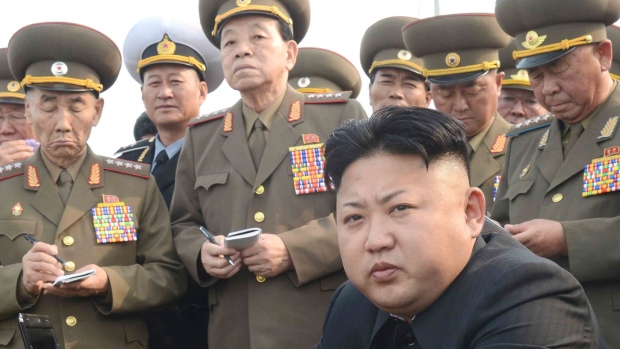While we were winding down last night after a long day covering CES 2016 and the rest of the country was finishing up its day as well, North Korea was detonating a nuclear bomb.
At 10:00 a.m. local time in the Eastern country, a Kim Jong Un ordered test of what the country claims to have been a small hydrogen bomb set off seismic activity alarms in South Korea and Japan, registering as a 5.1 magnitude earthquake. The alarms led both nations to believe immediately that a nuclear device had been tested in North Korea and their concerns were confirmed when North Korean state TV announced the test later in the morning.
North Korea last tested a nuclear bomb in 2013, and this is the fourth time North Korea has detonated a nuclear device in recent years.
DON’T MISS: It finally happened: Hoverboard fire burns down Australian family’s house
“Let the world look up to the strong, self-reliant nuclear-armed state,” Kim Jong Un said in a hand-written note that was displayed on state TV following the test. According to North Korea’s claims, the device in question was a small hydrogen bomb. Experts in South Korea have cast doubt on the claim that it was actually an H-bomb, however.
South Korean officials say that the bomb’s yield was approximately 6 kilotons, which Reuters reports is roughly the same size as the atomic bomb detonated in North Korea’s previous test. “Given the scale, it is hard to believe this is a real hydrogen bomb,” Korea Defense and Security Forum fellow Yang Uk said. “They could have tested some middle stage kind (of device) between an A-bomb and H-bomb, but unless they come up with any clear evidence, it is difficult to trust their claim.”
Other experts seem to agree that the device in question is likely a hybrid bomb rather than a true hydrogen bomb.
“Because it is, in fact, hydrogen, they could claim it is a hydrogen bomb,” security expert Joe Cirincione of the Ploughshares Fund said. “But it is not a true fusion bomb capable of the massive multi-megaton yields these bombs produce.”
North Korea said this most recent nuclear test was an “act of self-defense” to ensure it is protected against threats from its enemies, including the United States.








